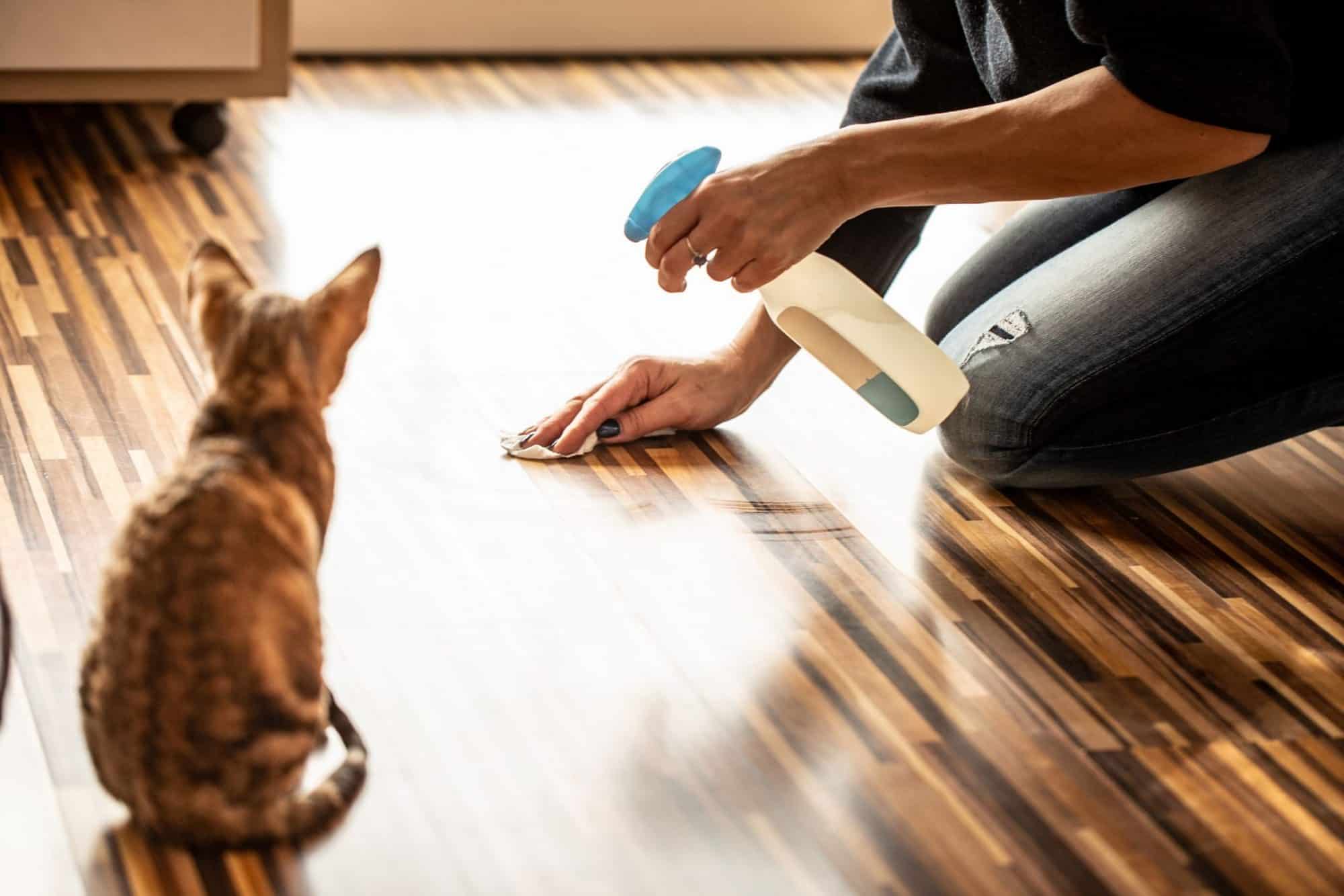Spring Cleaning and Pet Safety: A Match for the Season

The weather is getting warmer and the last traces of winter are quickly fading away. What better way to welcome the new season than by cleaning and organizing your house? As you start to create to-do lists to help you clean out your home this spring, keep in mind that many of the most common household cleaning products can be extremely poisonous for pets. The team at Bowman Veterinary Hospital is here to help you understand spring cleaning and pet safety so you can get your house in top shape without threatening your pet’s health:
Pet-Friendly Spring Cleaning Supplies
Before using any cleaning product, you should read the ingredients to see if anything might be toxic for your pet. Even many cleaning products that are labeled as “natural” can be harmful for animals, which is why it is imperative to do some research.
Even the airborne vapors of some cleaning products could prove poisonous for a pet. In order to ensure safety, you should choose known pet-friendly cleaning products or make your own DIY cleaners using these non-toxic (and effective) ingredients:
Baking soda – This natural home remedy is a powerhouse stain remover and can also get rid of odors and grease.
Lemon juice – Lemon juice is one of nature’s antibacterial and antiseptic ingredients that can be used throughout the home. It also has a built-in spring scent.
Salt – Can be used to remove tough-to-clean grime.
Vinegar – Both distilled white and apple cider vinegar are antibacterial, antifungal, and antiviral, which is why they are great alternatives to all-purpose cleaners and bleach.
You should always store cleaning products (whether natural or commercial) out of reach from your pets to avoid GI issues or accidental poisoning.
How Can I Tell if My Pet Has Been Poisoned?
We see far too many cases of accidental pet poisonings from toxin exposure. The best way to get treatment if this happens is to know how to spot the signs of contact with a toxic product.
Be on the lookout for the following symptoms of a pet poisoning:
- Vomiting or diarrhea
- Drooling
- Refusal to eat
- Excessive thirst
- Pale gums
- Coughing up blood
- Weakness or lethargy
- Accelerated heart rate
- Foul breath
- Changes in urination
Call us immediately if you think your pet has been poisoned and read up on additional information at Pet Poison Helpline.
Happy Spring!
At Bowman Veterinary Center, we know that spring cleaning and pet safety can be achieved with a little bit of attention to detail. Please let us know if you have any questions—we are always happy to help!


